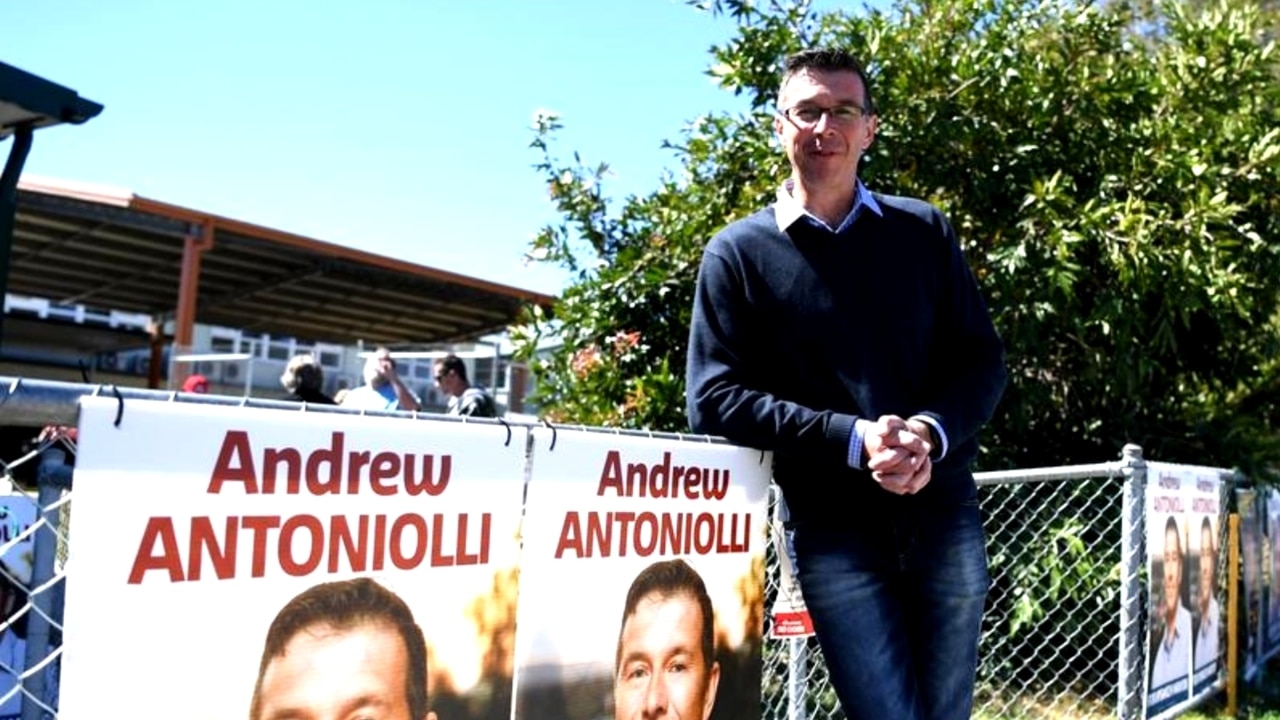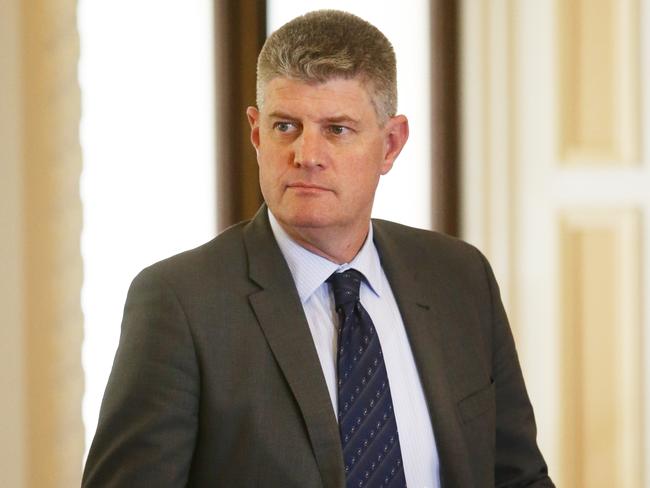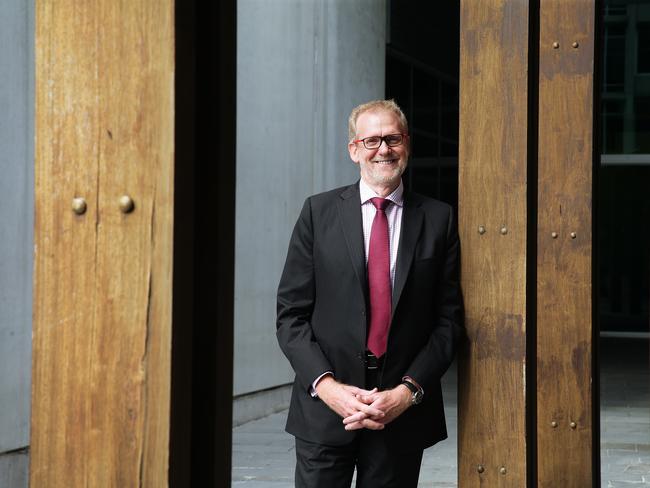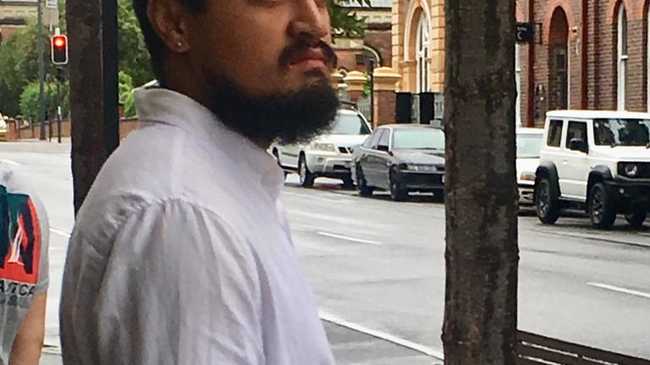Crime and Corruption Commission investigation into Ipswich City Council reveals list of alleged sins
THE Local Government Minister says he will implement all of the corruption watchdog’s recommendations on Ipswich City Council, as the D-day for its sacking approaches.

Crime & Justice
Don't miss out on the headlines from Crime & Justice. Followed categories will be added to My News.
LOCAL Government Minister Stirling Hinchliffe has indicated the Queensland Government will likely implement all the recommendations of the Crime and Corruption Commission’s probe into Ipswich City Council.
Mr Hinchliffe said he was still considering the watchdog’s damning report, but he believed the CCC’s recommendations “seemed appropriate”.

It came as he prepared to introduce and pass a new Bill to sack Ipswich City Council on Tuesday.
If passed, the councillors will likely be out of a job by the end of next week.
He backed the CCC’s move to release the report publicly.
“The most disturbing things in that report were those areas where council staff and generally lower level council staff were the subject of bullying, subject of intimidation and put into a situation where they feared speaking out against the actions of certain powerful people,” he said.
Overnight The Courier-Mail reported the list of sins alleged by the corruption watchdog, including that Ipswich top brass had used council companies to pay for exclusive club memberships, and had a contractor secretly top up betting accounts.
Councillors and executives also dined at expensive restaurants and flew business class for personal trips, charging it back to council-owned companies, the Crime and Corruption Commission claimed in the report.
Top council operators also were accused of deliberately using backdoor messaging systems to hide from scrutiny from journalists and investigators.

Coming a week before State Parliament moves to pass laws to sack the council, the CCC report also portrays governance failures such as allegations that a councillor arranged for one staffer to say they were behind the wheel of a council car caught speeding by police. The councillor’s friend, who did not work at council, was driving and council copped a $2000 corporate fine.
Allegations about gifts for development favours also form part of a blistering appraisal of the local government authority’s failings, in a report entitled “Lessons from an investigation into Ipswich City Council”.
Ipswich City Council declined to comment last night on the CCC’s report, which was tabled in Parliament.
The CCC’s Operation Windage was launched last October following corruption allegations levelled against senior Ipswich officials.
Fifteen people have since been charged with 86 criminal offences, including former mayor Paul Pisasale and chief executive officer Carl Wulff being hit with corruption allegations.
The CCC’s report identified “significant and extremely concerning governance failures,” a number of which did not reach the threshold of corrupt conduct to pursue criminal charges. The allegations did not name specific staff or councillors.
The report raises questions about councillors “who may not have been directly involved or aware of the extent of some practices,” but were still accountable for good management of the council.
“An unhealthy culture within (council) contributed to the alleged corrupt activity,” it found.
One line of investigation looked at council-owned companies, which were used to supposedly progress developments in Ipswich. The CCC found one council-controlled entity, whose directors were councillors or senior executives of council, paid for “business-class flights, meals at expensive restaurants, accommodation and memberships to a private Brisbane-based club”.
Council is shutting down the private companies.
Another case study looked at a contractor’s gambling relationship with a top council employee. The contractor gave tickets to events such as Flemington Race Day in Melbourne in October 2016 worth $1450, and “allegedly arranged for betting credits to the value of $5000 to be deposited into the senior executive employee’s betting account”.
“In exchange for these gifts and benefits, it is alleged that the senior executive employee facilitated meetings between the associate and various town planners to ensure his associate was in a good position to win tender processes in Ipswich,” the CCC claimed.
One councillor was so tight with a developer, who had two projects in Ipswich, that the businessman let him stay for free at “inner-city units that he managed” and they planned to seek enterprise opportunities in China.
The developer also “inappropriately paid the councillor for his assistance setting up meetings with relevant council town planning staff and ensuring that applications relating to his developments in Ipswich were accelerated through council processes”, the CCC said.
The CCC then mentioned another risk – that its investigation had “highlighted a nexus (connection) between property developers and organised crime”.
Donations were also under the spotlight. The CCC also said one developer told investigators “he felt he received preferential treatment from Ipswich City Council and the councillor because of his political donation”.
The CCC made recommendations, including asking the Local Government department to examine if councils should have private companies, the banning of councillors using private email for official work, and setting standards for high-risk areas.
CASE STUDY 1: Council-controlled company, whose directors are councillors or council executives, pays for business class flights, meals at expensive restaurants, accommodation and memberships to a private Brisbane-based club. Directors said expenditure for “planning Ipswich developments”, CCC says spending was for “own personal benefit”.
CASE STUDY 2: Council executive regularly socialises with contractor. Contractor “allegedly arranged for betting credits to the value of $5000 to be deposited into the (executive’s) betting account” and gave tickets to events such as Flemington Race Day in Melbourne (worth $1450). Executive allegedly facilitated meetings between contractor and town planners.
CASE STUDY 3: Councillor lets friend drive council car, who cops a speeding ticket. Councillor asks council employee to take responsibility for infringement because friend has minimal points left on their licence.
CASE STUDY 4: Developer inappropriately pays councillor for assistance setting up meetings with town-planning staff and ensuring that applications relating to his developments in Ipswich were accelerated through council processes.
CASE STUDY 5: Councillors and executives use private email accounts specifically to avoid Right to Information requests from journalists as a way of concealing unfavourable decisions or records of information.


